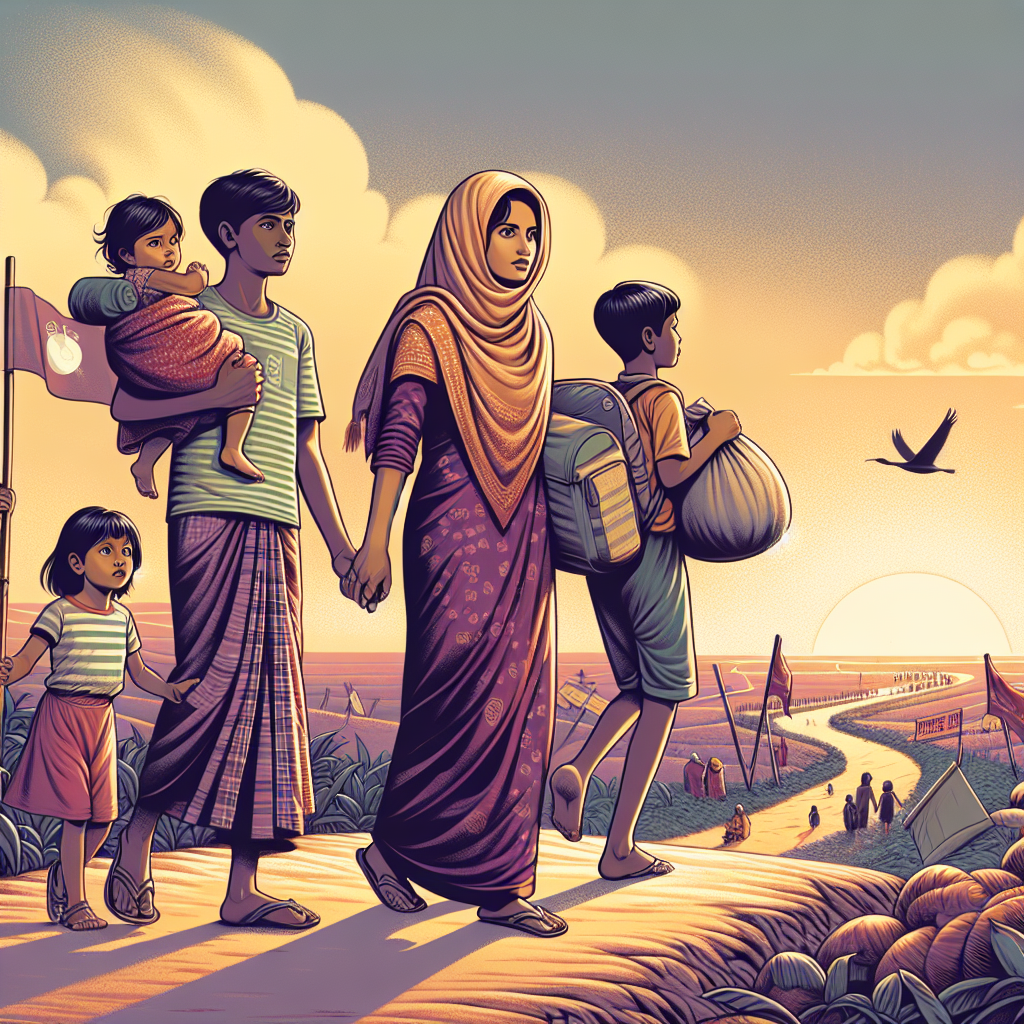Struggling for Survival: Rohingya Refugees in Crisis
The World Food Programme is managing to sustain food assistance for Rohingya refugees in Bangladesh despite funding shortages, slightly reducing rations. Bangladesh shelters over 1 million Rohingya, and funding cuts risk worsening hunger and healthcare, while U.S. financial aid aims to alleviate the situation.

The United Nations World Food Programme is maintaining its food assistance programme for the Rohingya refugees dwelling in Bangladesh, despite having to slightly reduce their rations due to funding shortages, officials announced on Thursday.
The revised food supply plan allocates $12 monthly to each refugee residing in the world's largest refugee settlement, located in Cox's Bazar, down from the former $12.50. Previously, WFP cautioned that, without immediate financial aid, it might drastically cut food rations to just $6 per person by April. An earlier reduction, dropping rations to $8 per individual in 2023, led to a severe malnutrition spike until reversed.
Joinul Mostafa, a Rohingya refugee in Cox's Bazar, expressed gratitude, acknowledging the rations as a means of survival. Meanwhile, a WFP spokesperson highlighted that the financial gap was bridged with "timely contributions from donors," without disclosing specifics. Additionally, the U.S. pledged $73 million in new aid through the WFP for Rohingya refugees.
Bangladesh houses more than a million Rohingya, a minority fleeing persecution in Myanmar, with very restricted job and educational opportunities. The Rohingya exodus continues, with about 70,000 arriving last year, partly because of increasing hunger in Myanmar's Rakhine state.
The Office of Bangladesh's Refugee Relief and Repatriation Commissioner anticipates that the current food rations will help stabilize refugee nutrition and food security. However, it urged the international community to provide the needed funding for sustained life-saving efforts, highlighting the still present threats of hunger, poor healthcare, crime, human trafficking, and radicalization.
The crisis is far from over, as around 300,000 refugees have already suffered disruptions in healthcare services, according to the Inter-Sector Coordination Group responsible for relief operations.
(With inputs from agencies.)
ALSO READ
Bill Gates Partners with India for Transformative Healthcare and Development Initiatives
Bill Gates Strengthens Ties with Indian Leaders for Healthcare and AI Advances
India Sets New Benchmarks: Healthcare Transformation Under Modi's Tenure
Transgender Healthcare Balances on a Knife-Edge in Namibia
India's Healthcare Budget: An Inching Progress Towards 2.5% GDP










